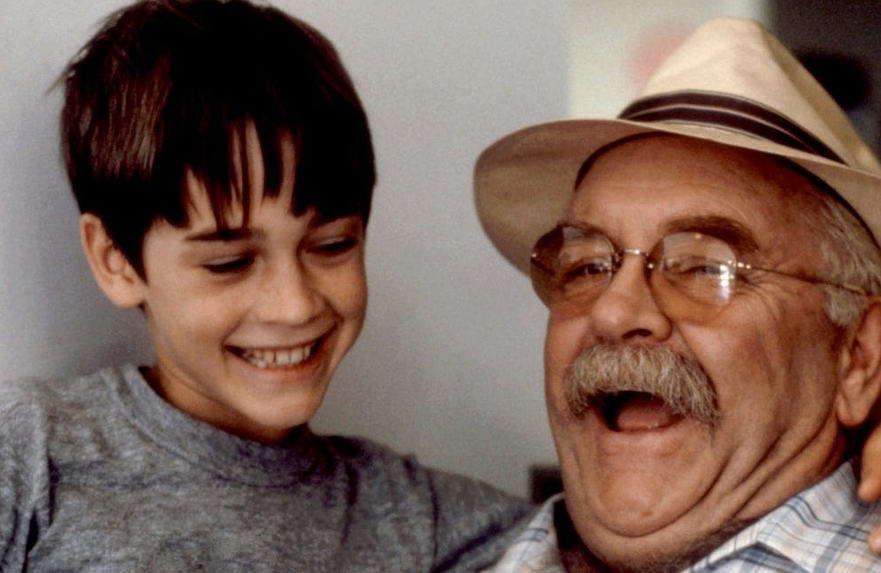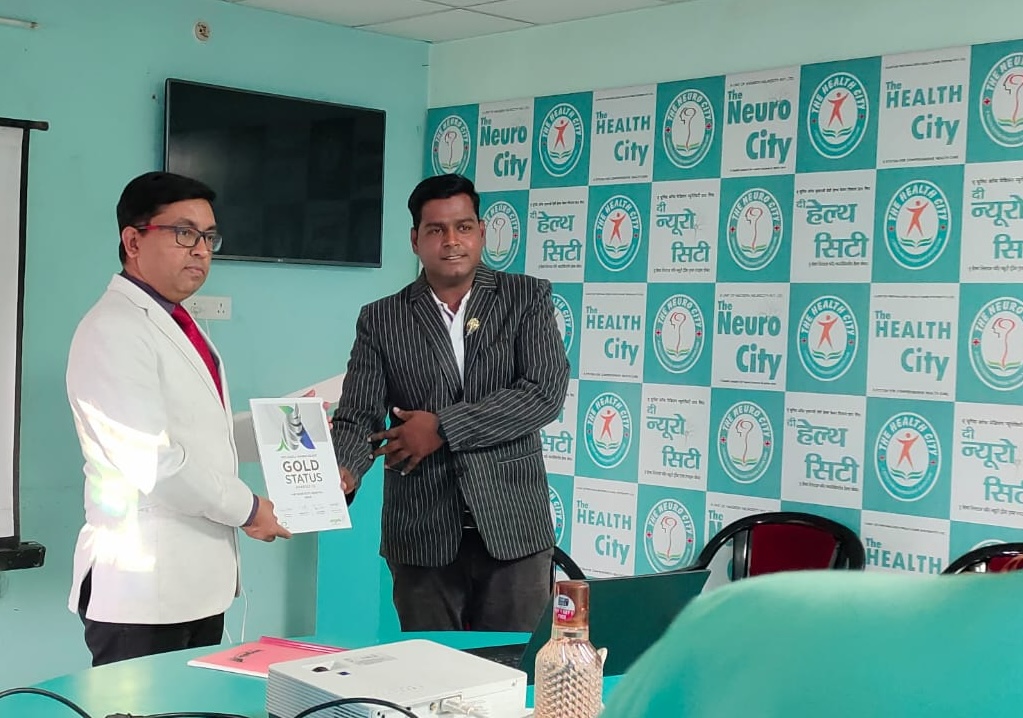
Az Uttar Pradesh az indiai kultúra bölcsője, amely a történelem és a kulturális gazdagságok szigete. A világ legrégebbi lakott régiója olyan ikonikus látnivalókkal büszkélkedhet, mint a Taj Mahal és Varanasi spirituális városa. A Himalája északra határolja az államot, a délre kisebb Vindhya termékcsaláddal, de ezek között a hegyek között a különböző hagyományok élénk szalagos pályája található, ahol minden sarok művészeten, zenén és konyhán keresztül mesél egy sztori.
Az Uttar Pradesh India negyedik legnagyobb állama és legnépesebb állama, a becslések szerint 239 millió ember alkotja a teljes népesség egyharmadát. Az állam 18 részlegre oszlik, amelyek 75 kerületre oszlanak, 106 747 faluval. A négyzetkilométerenként 828 fős átlagos népességsűrűség robusztus, szervezett és stratégiai megközelítést tesz szükségessé az alapvető egészségügy biztosításához, a szövődmények minimalizálásához és a kezelés javításához olyan stroke-os betegek esetében, akik időben érik el a kórházakat.
Az egészségügy ellátással kapcsolatos igényeket nagyítja az a tény, hogy a szomszédos államok majdnem egyformán nagyok. Bihar keleten, Haryana és Rajasthan nyugaton, Nepálban és Uttarakhand északon, Madhya Pradesh pedig délen található.
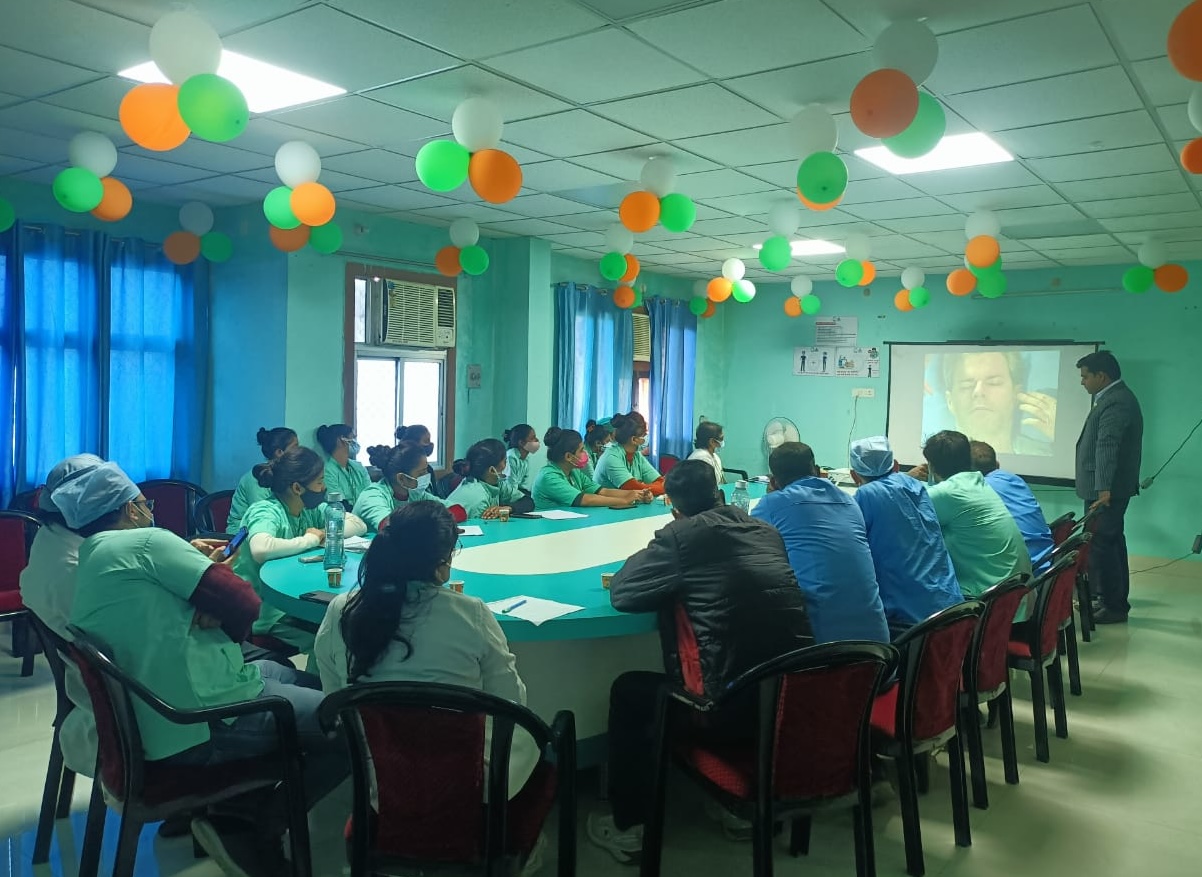
Egyszerre egy kő mozgatása
Az Uttar Pradesh esetében a stroke előfordulása évente akár 340 000 is lehet. Legalább 230 stroke-kompatibilis központ szükséges a lakosság 30 százalékának egészségügy való hozzáféréséhez. A stroke kockázatának kitett teljes populáció lefedéséhez körülbelül 755 stroke-ra felkészült kórházra lenne szükség.
Az infrastruktúra hiánya és a megfelelően képzett személyzet hiánya miatt a stroke központok száma jóval elmarad ezen céloktól.
Egy erőforrásokkal kapcsolatos, költségvetési korlátokkal és keresleti ütemtervekkel rendelkező forgatókönyvben a stroke gondozás optimalizálása Herculean feladat. De Ravish Upadhyay, Angels-tanácsadó egy stroke-kész állapotot is lehetőségnek tekint, amiért sikeresen bíróság elé állította a kórházak és a kulcsfontosságú döntéshozók támogatását.
2021-től Varanasiban 20 kórházat azonosított hat városban, amelyek Uttar Pradesh keleti részén találhatók, és amelyek a stroke-túlélés támogatására voltak felszerelve. Ezután nekilátott, hogy egyesével legyőzi az akadályokat.
Néhány kihívás ismerős volt – ezek voltak a kezelés késések és kihagyott lehetőségek a forgalmas sürgősségi osztályok miatt, a stroke-protokoll hiánya, a prioritások hiánya, a képzett személyzet hiánya és a motiváció iránti vágy. A legnagyobb kihívás azonban a gondolkodásmód megváltoztatása volt.Ravish-nak be kellett mutatnia az egészségügy szolgáltatóknak, hogy jelentős számú beteg érkezett a terápiatrombolízis kezelési ablakába, és meggyőzte őket arról, hogy ezért elengedhetetlen, hogy optimalizálják a stroke útvonalát.
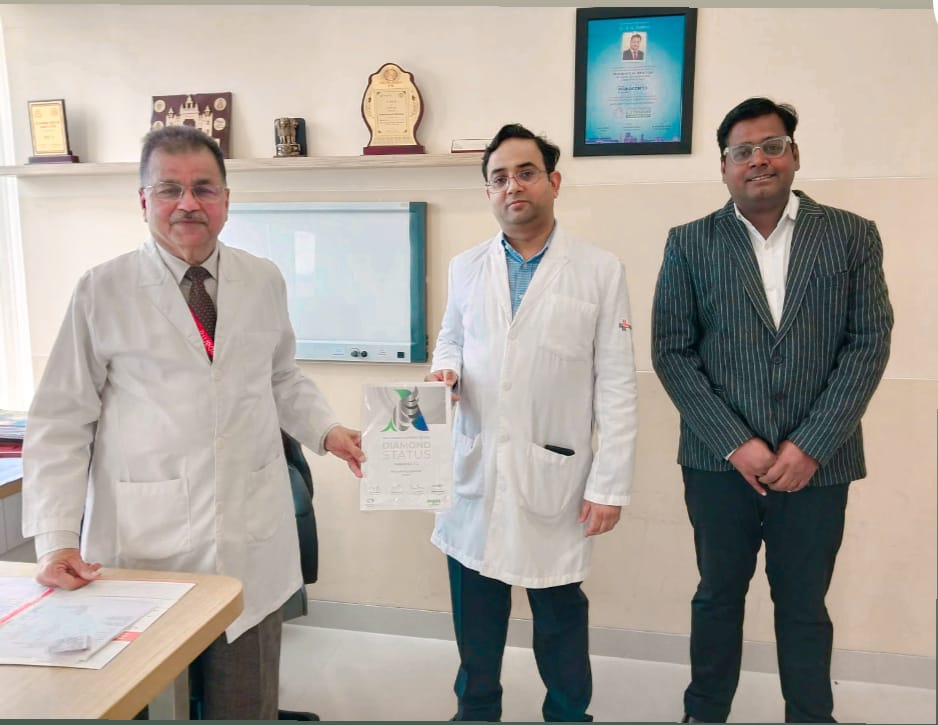
Tükör feltartása
Ravish esete a kórházakból gyűjtött adatokon alapult, és szimuláció képzést kezdeményezett az érdekelt felek számára a stroke útvonalának javítását célzó célkitűzésről. Ezek a szimulációk késő este történtek, amikor kevesebb stroke-bajnok volt az eljárások felügyeletére. Ez éjjel-nappal betekintést nyújtana a szokásos ellátásba.
A szimulációs képzést öt kórházban kísérelték meg – Apex kórházban, Galaxy kórházban és a Neurocity kórházban Varanasiban, Lifeline kórházban Azamgarhban és Anand kórházban Prayag Rajban. Ravish azt remélte, hogy megfigyeli a kórház strokekezelés való felkészültségét, beleértve a kezelés a házig eltelt időt és a kezeléstől a CT eltelt időt, a stroke súlyosságának felmérési folyamatait és az ellenőrzőlisták használatát.
A szimulációkat követő beszámolók szemnyire nyitottak voltak, mivel Ravish rávilágított a kezelés késedelmeket okozó hiányosságokra. Ezek az események hozzájárultak ahhoz, hogy konszenzus alakuljon ki a stroke-útvonal és a kapacitásépítés javítására vonatkozóan a különböző részlegek között. Minden kórházban egy csapatot is kijelöltek egy stroke-adatbázis kidolgozásának és kezelésének felügyeletére.
Íme néhány kulcsfontosságú mandátum, amelyet Ravish a kórházakkal kezdeményezett:
- Egy nagy hatású csapat létrehozásához szoros együttműködésre és kapcsolatra van szükség az érdekeltek egy kis csoportja között. Ennek érdekében létre kell hozni egy WhatsApp részvényesi csoportot a folyamatos tudásmegosztás érdekében.
- A képzési naptárt az adminisztrációs osztályon (fentről lefelé haladó megközelítés) keresztül kell megosztani a résztvevőkkel, hogy biztosan rendelkezésre álljanak.
- A képzésen részt vevő személyzetnek el kell végeznie a tanfolyamot, és a képzés befejezését követően legalább nyolc hónapig a pozíciójában kell maradnia. (Ezt azért javasolták, hogy megoldást találjanak a személyzeti fluktuációból és a rövid szerződésekből eredő kihívásokra.)
- A felelősséget meg kell osztani és el kell osztani az osztályvezetők között, hogy folyamatos hangsúlyt kapjon a képzés elvégzése és az eszközök felhasználása.
- Rugalmas képzési óráknak kell rendelkezésre állniuk mind a személyes, mind a virtuális és a társképzési programokhoz, hogy alkalmazkodjanak a rögzített munkaidőhöz és megkönnyítsék a folyamat tulajdonjogát.
- Az előrehaladás folyamatos nyomon követése érdekében olyan monitorozó eszközöket kell bevezetni, mint az ellenőrzőlisták, a Helsinki plakát és a RES-Q nyilvántartás.
- Rendszeresen tartsanak stand-up üléseket minden érintett féllel az akadályok és a hatékonyság kezelése érdekében.
- Ünnepelje a díjakat és a tanúsítványokat minden érdekelt féllel a morál javítása érdekében.
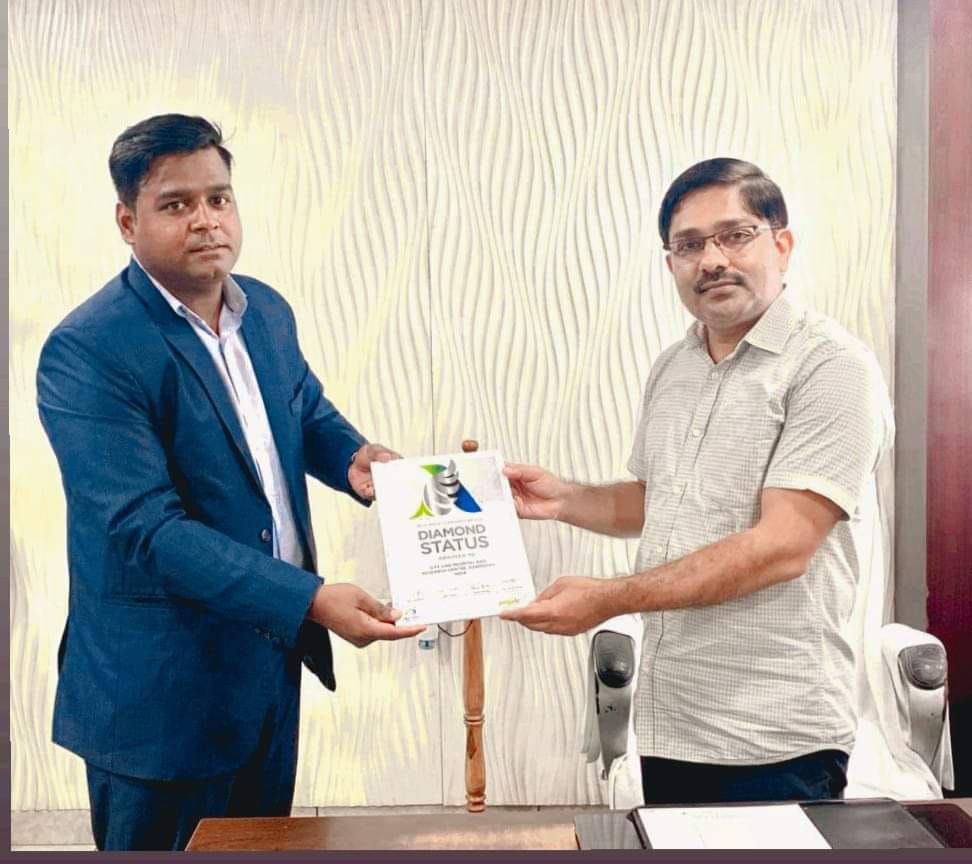
Sikeres ízek
Ezek a kísérleti kórházak stroke gondozás javítására tett erőfeszítések nemcsak segítettek Ravish-nek abban, hogy önbizalmat építsen ki. Azzal, hogy példákat osztott meg a kórházak legjobb gyakorlatáról, sikerült kiterjesztenie a stroke kezelésére felkészült kórházat hálózatát. Miután 2021-ben 20 kórházat tűztek ki célul, most már 65 kórház van a stroke hálózatban Uttar Pradesh-ben, akik együttműködtek Angels-szel. Sok esetben a képzésbe való befektetés együtt járt az orvosi infrastruktúra fejlesztésével, például dedikált stroke egységek és jobban felszerelt mentők létrehozásával.
Ez a stratégia sikerének másik mérőszáma, hogy az uttar pradeshi kórházak eddig 16 WSO Angels díjat nyertek. A fővárosban található Medanta Kórház az első, amelynek kilenc díja négy gyémántból áll. A Lifeline Kórház és Kutatóközpont a távoli Azamgarhban három egymást követő gyémánt díjat nyert, és két díjat is nyert a varanasi Neurocity Kórház és a Lucknow-ban található George’s King’s Medical University.
Az Uttar Pradesh az erős politikai és kulturális hatásoknak köszönhetően kihívást jelentő állapot. Ravish számára ez az utazás eddig a vezetés, a szenvedély és az alkalmazkodóképesség próbája volt. Továbbra is hű marad a céljához, hogy „minden stroke beteg ugyanazt a kezelés kapja”, és azt a meggyőződést, hogy a siker sikert hoz.
Shree Kapil Dev, India veterán krikettkapitányának szavaival élve: „Ismerje meg egyszer a sikert, a nyelve többet akar”. Az örökség folytatódik!


